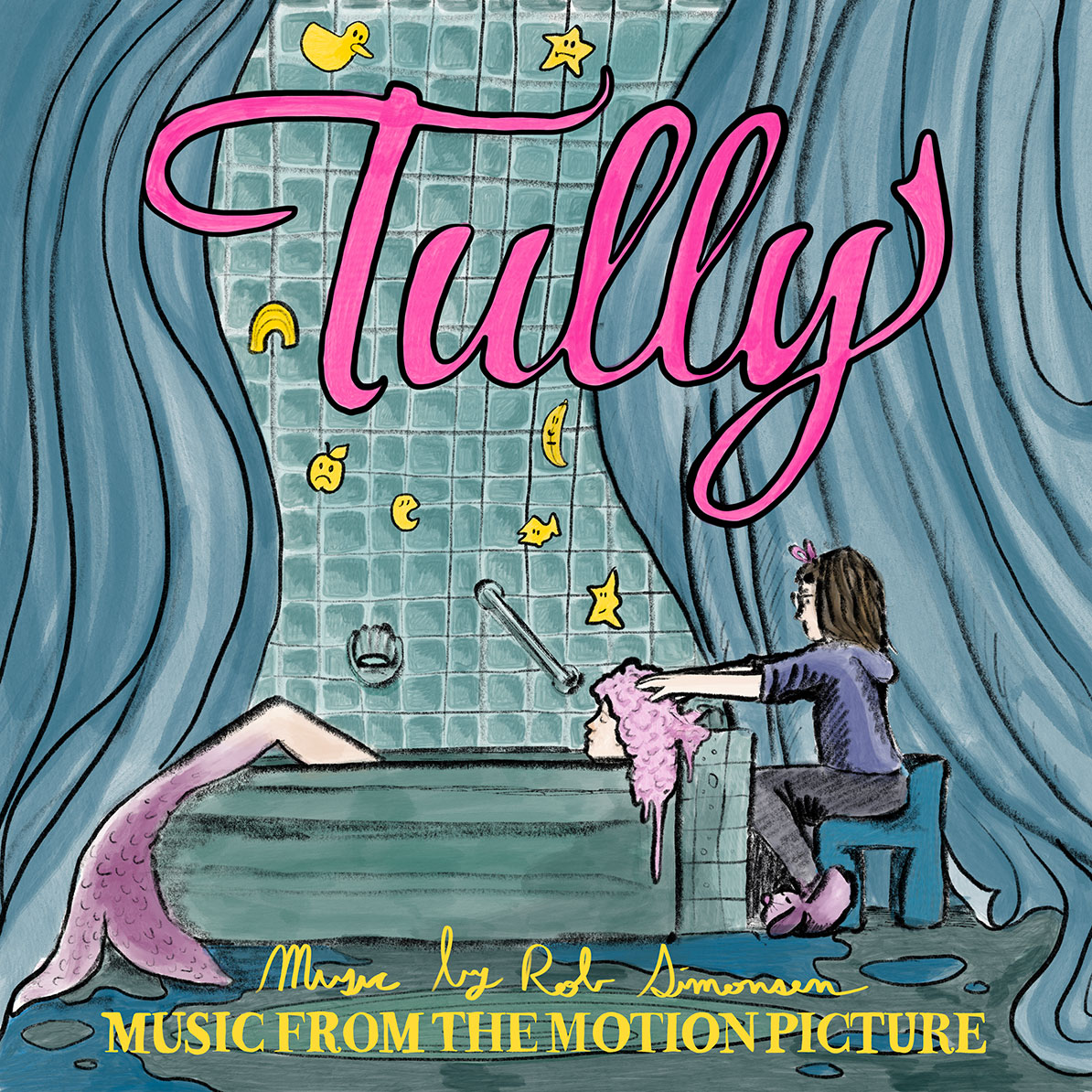by Chris Feil
 Despite being the most isolated character study of Jason Reitman and Diablo Cody’s collaboration, Tully still makes space for a subtle musical world inside its protagonist’s head. Tully is a story about motherhood and mental health, taking some big narrative risks as it moves towards healing. When music trickles in, it offers its own kind of mindful balm attuned to the psyche of Charlize Theron’s Marlo. It’s the most musically subtle of the Cody/Reitman empathy trilogy, but no less effective...
Despite being the most isolated character study of Jason Reitman and Diablo Cody’s collaboration, Tully still makes space for a subtle musical world inside its protagonist’s head. Tully is a story about motherhood and mental health, taking some big narrative risks as it moves towards healing. When music trickles in, it offers its own kind of mindful balm attuned to the psyche of Charlize Theron’s Marlo. It’s the most musically subtle of the Cody/Reitman empathy trilogy, but no less effective...
Much like Young Adult and Juno, Tully announces its musical identity immediately and in a moment of quiet before words complicate everything. A demo version of The Velvet Underground’s “Ride Into The Sun” tenderly frames Marlo brushing her anxiety-riddled young son Jonah, an alternative therapy practice that quickly speaks volumes about this family unit. All sound and dialogue is omitted for this opening moment, distilled down into the soothing sensation of the music. Like how Jonah’s attention is drawn to the soft bristles on his skin, our senses are focused into the scene’s golden sound and light.
Here music helps represents the practice of comfort and self-care, inviting us into the self-centering ritual of mother and son before it lays out its conflict. Outside of this, the silences surrounding Marlo is thick and tense. Rob Simonsen’s score is used sparsely, like fleeting relaxations Marlo is able to find through out the day.
But that meditativeness certainly doesn’t always work, as witnessed in the nursery rhyme remixing of Rufus Wainwright’s “Tiergarten”. Reitman imprints what sounds like an orchestration from a child’s toy, matched with the sadness of Wainwright’s dragging vocals, over the hellscape of tasking to a new baby. It’s like the sound you’d shake at a crying baby, cooing along to not let it see you’ve lost your mind. The beat is simple, but Marlo struggles to keep tempo.
It’s an enervated and hilariously devastating sequence, the antithesis of the opening musical moment. The juxtaposition of both musical sequences reveals that something has ceased to work for Marlo. What first was an effective mother and child coping with stress, is now manic and desperate, the messiness of dialogue invading this time as well. The twinkling nursery tune turns punishingly monotonous, it repetitious beat like a labored mantra that’s ceased to work. Or maybe it sounds and feels like a carousel she’s stuck on.
Elsewhere music serves as a pressure valve for Marlo’s troubles, representing how music can save us in a pinch or be a vessel for catharsis. The Beulahbelles find a stasis closer to the opening practices, a looser sound as we think Marlo is finding the simple pleasures of her life with Tully's assistance. “Call Me Maybe” as girl power karaoke, the fundamental physical release from headbanging death metal, car rides lost to the entirety of Cyndi Lauper’s “She’s So Unusual”. Your favorite song as a momentary gift to yourself. Like moments that shock you into awareness for your headspace, or simply coax out some joy. Reitman leaves Marlo with Simonsen's score like a blank canvas, ready to create the rhythm of healing.
All Soundtracking installments can be found here!